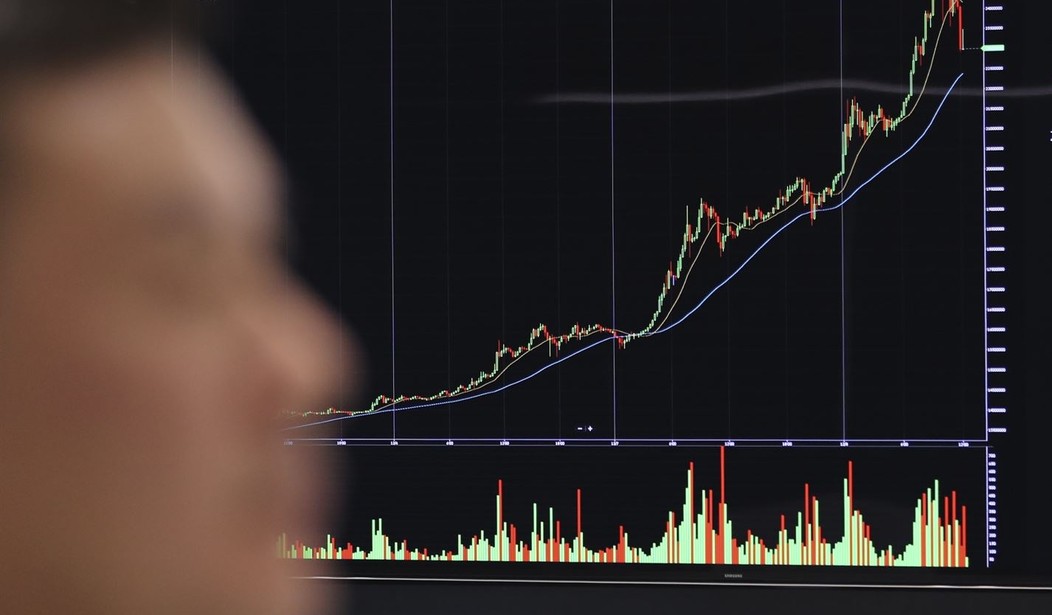When a disruptive technology like the blockchain and cryptocurrency starts generating enough attention and wealth to rise to the attention of Congress, legislators’ desire to regulate it and tap it for revenue frequently outpaces their understanding of how it works. Unfortunately, a last-minute rider attached to the infrastructure bill making its way through Congress provides us with a case study in the dangers of carelessly meddling in emerging technologies, and could potentially kill crypto innovation in the U.S.
The haste with which the legislation was advanced was in this case a product of lawmakers desperately fumbling around for “pay-fors” to offset the cost of their $550 billion infrastructure bill. Lawmakers hoped to tap into uncollected tax revenue from cryptocurrency transactions by categorizing crypto exchanges as “brokers” for tax purposes, which would require them to collect more detailed personal information on their users and issue them a 1099-B form. The likely overly-optimistic sum of $28 billion this was projected to account for was roughly the legislative equivalent of an addict fumbling around for change in the couch cushions.
Unfortunately, the change to cryptocurrency tax enforcement revealed legislators’ ignorance of how distributed ledger technologies work. The new provision’s definitions of “broker” and “digital asset” would not only require cryptocurrency exchanges, which already pass along some tax information to tax authorities, to remit this tax information to the IRS, but would require the same ofanyone involved with transactions on a distributed ledger.
This could potentially include miners, nodes, and possibly even the makers of hardware and software wallets, including many services which are decentralized and therefore have no ability to collect the data the IRS would require. As Senator Ron Wyden (D-OR) tweeted, “It’s an attempt to apply brick and mortar rules to the internet and fails to understand how the technology works.”
For his part, Senator Rob Portman (R-OH), who authored the problematic section, was willing to work to improve the language, which he says was not intended to ensnare crypto miners or nodes or wallet vendors. Intent aside, though, the provision leaves it to the Treasury Department to draw up how the definition of “broker” would actually be enforced, and it is telling that Treasury Secretary Janet Yellen actively opposed a strong amendment by Senators Toomey, Wyden and Lummis to narrow that definition.
Recommended
If Yellen’s Treasury Department were to attempt to apply these reporting requirements as broadly as the current legislation would allow, it would create several problems beyond slapping crypto traders with more paperwork. As the Electronic Frontier Foundation has warned, “The mandate to collect names, addresses, and transactions of customers means almost every company even tangentially related to cryptocurrency may suddenly be forced to surveil their users.”
Even more troubling, many technologies that could be affected merely facilitate anonymized and encrypted transactions, meaning that they never possess and therefore could not possibly collect the information the IRS seeks. For such services, most prominently crypto mining, being dubbed a “broker” would make it impossible to operate in compliance with tax enforcement rules in the United States.
Blockchain and other distributed ledger technologies are still quite new, and we’ve only just begun to grasp its many potential uses outside of secure payments and digital currencies. For those skeptical of the control wielded by “Big Tech,” crypto has the potential to play a large role in breaking down the walls to a more decentralized internet and digital economy. But there’s no faster way to strangle a potentially revolutionary technology in the crib than to regulate it out of existence.
Congress needs to take great care to foster an environment in which nascent technologies such as crypto can develop and realize their potential, which means that efforts to regulate must be minimally invasive and undertaken with the input of those who understand the technology. Needless to say, the blank check this crypto tax writes to the Treasury Department is a step in the wrong direction.
Josh Withrow is the Director of Technology Policy with the National Taxpayers Union Foundation, a nonprofit dedicated to tax and fiscal policy research and education at all levels of government.

























Join the conversation as a VIP Member